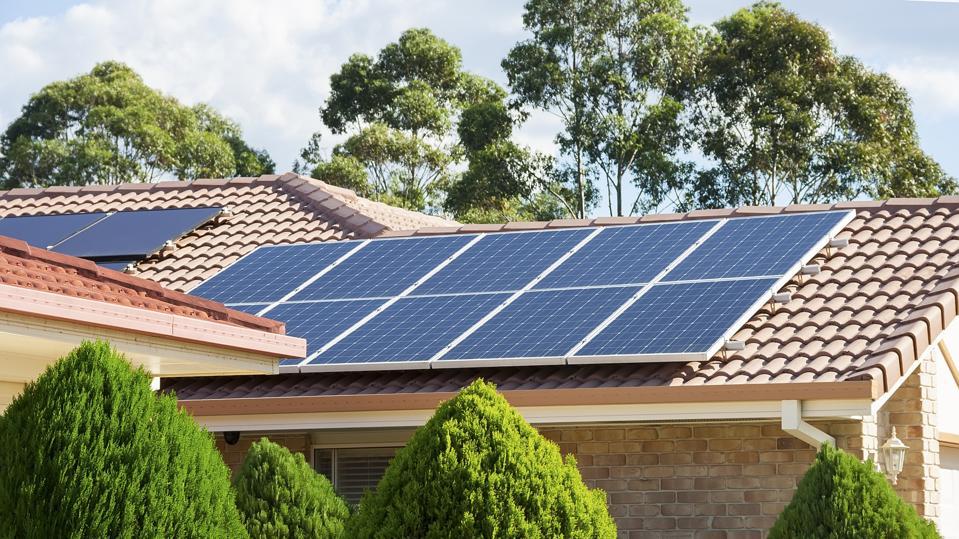When installing photovoltaic (PV) panels on your property, it is important to consider the options available and make an informed decision. It can be difficult to know which type of PV panel best suits your needs, as there are several considerations, including cost, efficiency, compatibility and performance. This article will provide a comprehensive guide on choosing the right PV panels for your particular requirements.
Overview of Solar Panels
Solar panels are a form of renewable energy that offer many advantages when generating clean and sustainable electricity. Solar panels have become an increasingly popular choice among homeowners and businesses with the increasing demand for eco-friendly energy sources. This article provides a comprehensive overview of solar panel technology, focusing on its advantages, cost-effectiveness, installation process, and maintenance requirements.
Solar panels consist of photovoltaic cells that convert sunlight into electricity. When sunlight hits the cells in the panel, electrons are released from the atoms in the cell material, which creates an electrical current. Solar panels can be installed on rooftops or ground-mounted systems depending on individual needs and preferences. Rooftop installations are generally more common as they take advantage of existing roof space. At the same time, ground mount systems provide greater flexibility in placement and orientation towards the sun for optimal performance.
Types of PV Panels
PV panels, or photovoltaic cells, are becoming increasingly popular for residential and commercial solar energy production. These devices convert solar radiation into electricity efficiently and cost-effectively. There are several types of PV panels available to suit different needs:
Monocrystalline Panels
Monocrystalline panels have the highest efficiency rating at around 18-21% among all PV panel types. They are made from a single crystalline silicon ingot and can be identified by their uniform black colour. Due to their higher efficiency rating, monocrystalline PV panels also require less space than other types of cells.
Polycrystalline Panels
Polycrystalline panels have an efficiency rating between 14-17% and boast a blue hue with visible grains throughout the cell material. Polycrystalline PV panels are made from a bunch of smaller silicon crystals that have been grown together in a semi-random manner.
Thin Film Panels
This type of PV panel is made of amorphous silicon, a material with no crystalline structure. Thin film PV panels have an efficiency rating of 10-15 and are very flexible. They can be easily made into shapes, which is why they have been used to make clothes and other flexible materials.
Cost Considerations
The rising popularity of photovoltaic (PV) panels as a form of renewable energy has made them an increasingly attractive purchase for homeowners. PV panels provide many benefits, such as reducing electricity bills and producing clean energy, but it is important to consider the cost before deciding.
The upfront cost of PV panels is typically the largest obstacle to overcome when determining if they are the right choice for your home. The price can vary widely depending on size, brand, quality and installation required, so it is important to research to find the best product for your needs at the right price. Apart from purchasing costs, additional fees may be associated with setting up a system in your area that must be considered when calculating overall expenditure.
Installation and Maintenance
Photovoltaic (PV) panels are becoming an increasingly popular choice for residential and commercial applications due to their low-maintenance design, long lifespan, and ability to generate clean energy from the sun. Installation of PV panels is a simple process that many homeowners can do with basic electricity knowledge. Maintenance is required regularly to ensure optimal performance and get the most out of your solar energy system.
To start, a proper installation by certified personnel is key in PV panels. This includes ensuring all components are securely fastened in place and properly connected according to local building codes and regulations. Additionally, it’s important to inspect the wiring regularly to make sure they remain secure over time. For those who have installed their solar panel system, having an expert check connection every three years can help prevent any potential issues.
Environmental Impact
PV panels are increasingly becoming a mainstream energy source due to their cost-effectiveness and low environmental impact. They can produce clean, renewable energy from solar resources, which has the potential to reduce the global carbon footprint and help combat climate change. However, while PV panels have many benefits, it is important to consider the environmental impacts of their production and installation.
The manufacturing process of PV panels requires materials such as glass, aluminium, copper and silicone that can affect air quality if not handled properly. Additionally, toxic chemicals may be used during production that can potentially contaminate water sources or cause harm to workers in factories who handle them without proper protection. During the installation of PV panels, there is also an increased risk of disrupting local ecosystems due to deforestation or removing vegetation for access roads or equipment staging areas.
Conclusion: Making the Right Choice
In conclusion, choosing the right PV solar panel for your home or business is a big decision. When making this decision, you should consider your location, budget, power needs, efficiency, and other factors. With the help of a professional engineer or contractor, you can be sure that you are getting the best solar panels for your situation. Ultimately, investing in a quality solar panel setup can provide you with both short-term savings and long-term sustainability.
